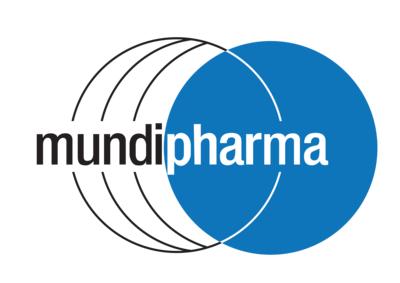Mundipharma and Economic Intelligence Unit Study Shines...
-
SINGAPORE /PRNewswire/ -- Governments in Asia are finding it to be an increasingly difficult challenge to keep cancer at bay. The International Agency for Research on Cancer (IARC) projects that incidence of cancer in the region will rise by approximately 75% between 2008 and 2030, and mortality will increase at a slightly faster rate[1].
The surge of cancer diagnosis in Asia is pushing governments to address the growing challenge through national cancer control plans (NCCPs) and placing increased stress on healthcare systems.
The Economist Intelligence Unit (EIU), in collaboration with Mundipharma, a pharmaceutical leader in pain management, assessed the extent and efficacy of such plans in the region from both developed and developing countries in a detailed report, Controlling cancer: The state of national cancer control plans in Asia.
The Mundipharma-sponsored EIU study summarized qualitative data collected from 10 Asian countries[2] and examined the nature of the challenge cancer represented to governments and healthcare systems. Several outstanding trends of increasing cancer rates were highlighted:
- In developed countries, cancer is a leading killer and in developing ones it is catching up at an alarming rate
- Population ageing, lifestyle choices, environmental pollution and ongoing infectious diseases were the main culprits of increased cancer rates
- Population ageing: As population ages further, the number of cancer cases doctors face increase
- Lifestyle choices: A combination of tobacco intake, dietary change and decreased physical activity has raised obesity rates, leading to marked rises in cancer risks
- Environmental pollution: Air and water pollution in countries with rapidly growing economies are exacting an increased cancer burden
- Ongoing infectious diseases: High rates of hepatitis in the region help explain widespread incidence of liver cancer in many of the countries, as well as human papillomaviruses being the leading cause of cervical cancer
- The three countries most successful at fighting cancer are the wealthiest
The report also called out distinct NCCP efforts in each country and outcomes of such programmes, and identified areas governments could direct their attention to in improving cancer control plans.
- A need for a more holistic approach to cancer care: Besides Australia and Malaysia, most countries in the study fall short in some way to provide comprehensive services across the entire range of cancer control
- A need to engage more with those outside the healthcare system: Apart from Taiwan and Myanmar, most countries/regions in the study do not engage a wider range of stakeholders into the battle and convince the general population to the idea of modern cancer control
Notably, an examination of palliative care in the region proved to be an area where most countries are unable to properly integrate into their NCCPs. Australia and Malaysia were identified as the only countries involved in the study with substantial palliative care systems. In an earlier report also sponsored by Mundipharma, data highlighted the need to develop more effective pain management practices that will require collaborative efforts from institutional, social and regulatory organisations[3].
Raman Singh, President, Asia Pacific, Latin America, Middle East, and Africa, Mundipharma, commented:"Controlling cancer: The state of national cancer control plans in Asia has provided us with a clear dissection of each country's efforts to address the challenge that cancer poses in the region and plays an excellent guide to enable healthcare sectors with the ability to identify areas of improvement. At Mundipharma, we strongly advocate the importance and availability of pain management as part of palliative care and we consider it to be our responsibility to ensure that patients get the best possible opportunity to treat pain effectively."
Mundipharma continues to invest in stakeholder education through diverse informational programs, including their regional Pain Forums, PainFocus website, an educational online portal for healthcare professionals and patients, as well as their Pain Assessment via Pain Scale initiatives such as Pain Stethoscope.
The report is available for download on http://www.mundipharma.com.sg/controlling-cancer.
For further information please contact:
Stephenie Vasko
Communications Director - Asia, Latin America & Middle East
PH +65-6303-9732
[email protected]
www.mundipharma.com.sgAbout Mundipharma
The Mundipharma network of independent associated companies consists of privately owned companies and joint ventures covering the world's pharmaceutical markets. These companies are committed to bringing to patients the benefits of pioneering treatment options in the core therapy areas of oncology, pain, respiratory and rheumatoid arthritis.
www.mundipharma.com.sg
www.twitter.com/mundipharmatalk
www.linkedin.com/company/mundipharma-pte-ltdAbout The Economist Intelligence Unit
The Economist Intelligence Unit is the world leader in global business intelligence. It is the business-to-business arm of The Economist Group, which publishes The Economist newspaper. The Economist Intelligence Unit helps executives make better decisions by providing timely, reliable and impartial analysis on worldwide market trends and business strategies.
www.eiu.com
www.twitter.com/theeiuNotes:
[1]
Rengaswamy Sankaranrayanan et al., "Managing the Changing Burden of Cancer in Asia," BMC Medicine, 2014
[2]
10 Asian countries/regions Australia, mainland China, India, Indonesia, Malaysia, Myanmar, South Korea, Taiwan, Thailand and Vietnam
[3]
Current Practices of Cancer and Chronic Non-Cancer Pain Management: A Pan-Asian Study (ACHEON Study)
Logo - http://photos.prnasia.com/prnh/20150302/8521501264LOGO
Source: MundipharmaRelated Links:
